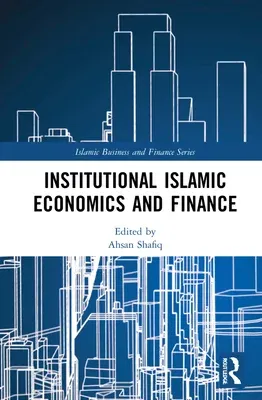Institutional economics claims that institutions and policies rather
than the size of labour force, technology or capital investment are
pivotal for growth or under-development. In this regard there are two
kinds of institutions: external institutions expressed in the form of
laws, organisations, regulations, companies, banks and the like and
internal institutions, which are found in the hearts and consciences of
individuals.
Against this backdrop, this book acquaints readers with the basic
concepts related to institutional economics. It then brings to light the
theoretical concepts related to the institutional perspectives on
Islamic economics, particularly highlighting areas where Islamic
economic institutions lay at the crossroads with conventional ones. The
book also ref lects upon the organisational arrangements that comply
with the basic tenets of Islamic institutional economics. Further, it
brings a collection of real-world case studies into discussion to show
the models of Islamic institutions that are pragmatic in today's
business environment. The book contains novel dimensions on the subject,
includes conceptual debates as well as practical examples and explores
hot topics such as waqf and fintech from an Islamic perspective. This is
the first book to exclusively cover this topic and is written by
well-known and respected international economists from the field.
Since the book is written in an accessible style and the concepts are
expressed in plain language, it will find an audience among academics,
researchers and students in economics and Islamic economic studies, as
well as policymakers and professionals engaged in the Islamic finance
industry, seeking to make their services and products conform to an
Islamic institutional perspective.

